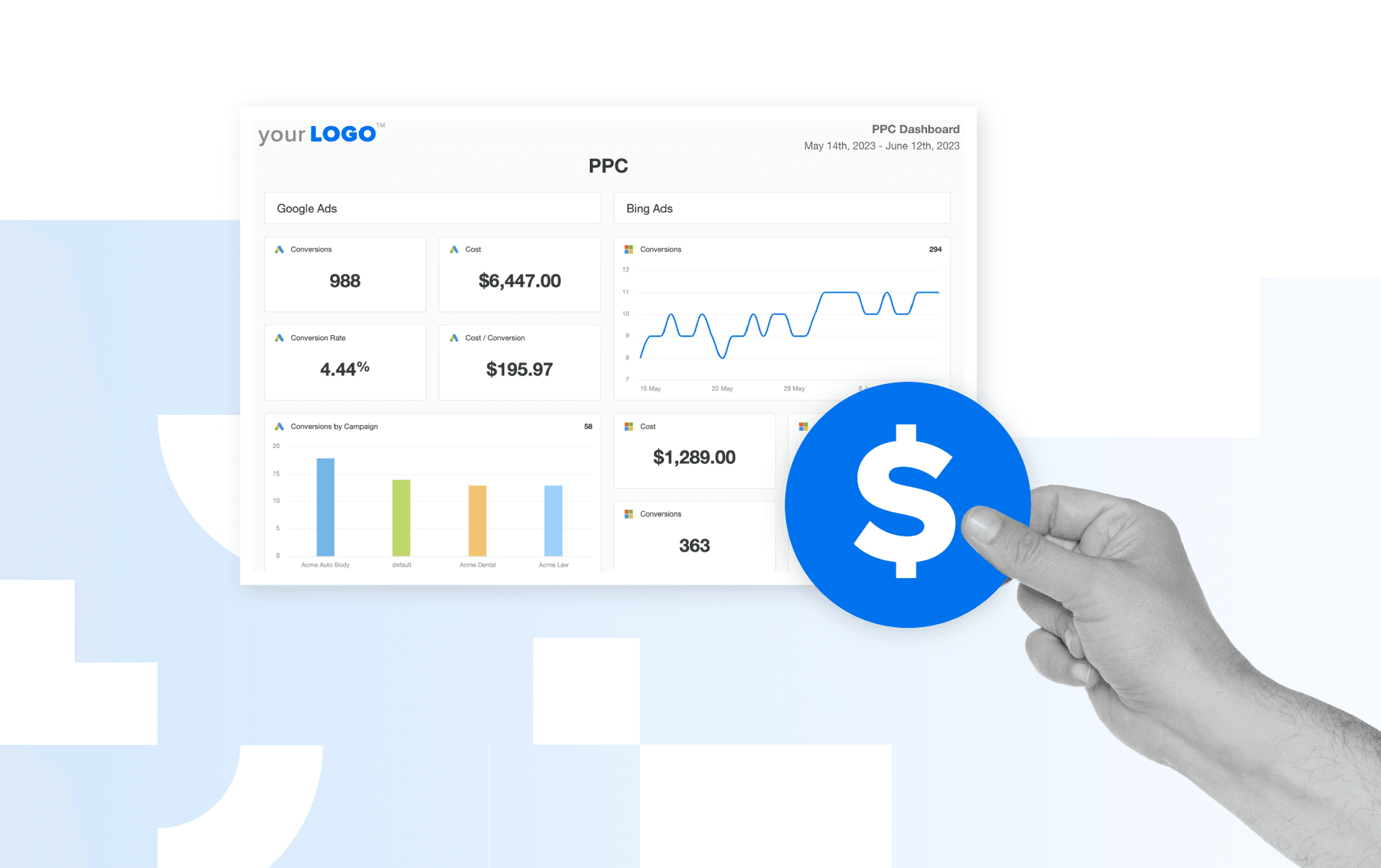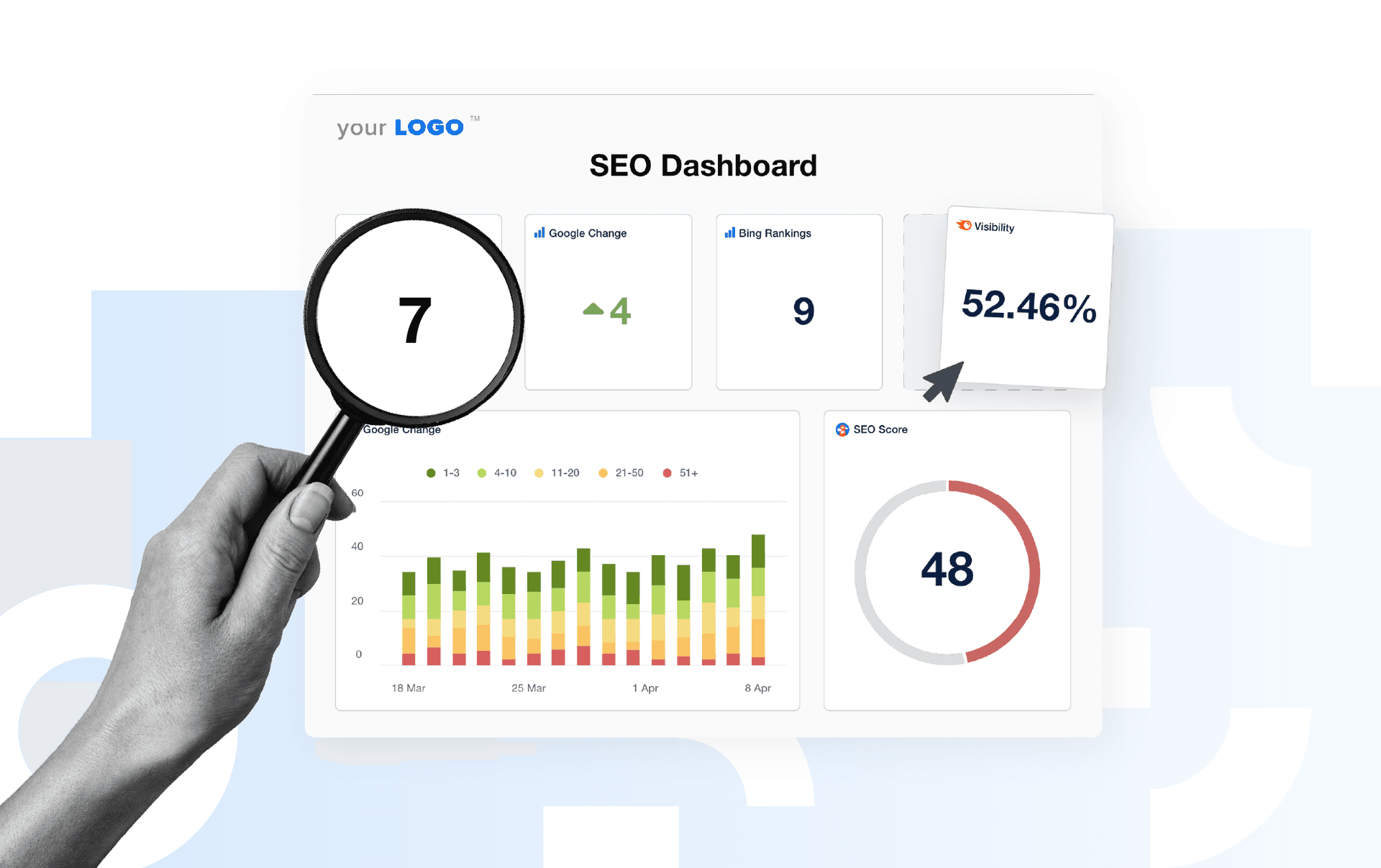Table of Contents
Over more than a decade—and driven directly by the needs of growth-focused marketing agencies—AgencyAnalytics has evolved from a single purpose tool into an industry-leading, multi-layered client reporting platform for digital agencies.
Entirely bootstrapped from the beginning, the company and its team have been able to remain true to their roots of focusing on growing and evolving the product in ways that satisfy customers—as opposed to investors. And as a result, the platform is purpose-built to support and enhance the structure and operations of agencies.
Here is the journey we’ve taken together with our customers, and the value we’re continually building upon to keep making it easier for agencies to thrive with their clients.
The Early Days of My SEO Tool
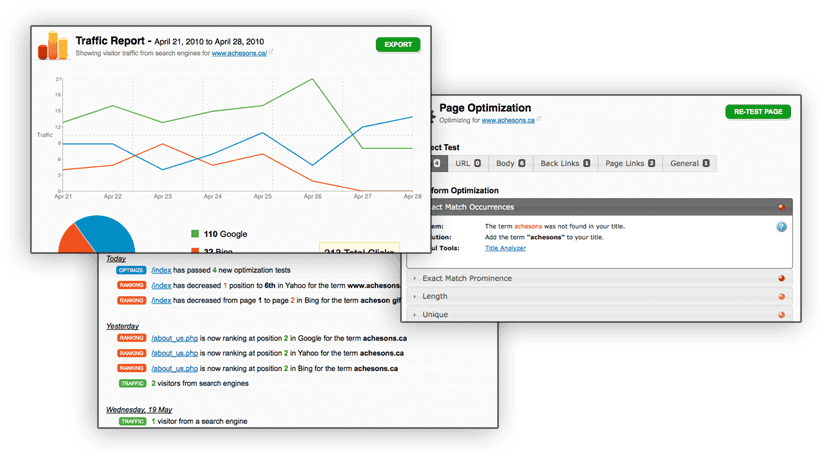
When founders Joe Kindness and Blake Acheson built the very first iteration of AgencyAnalytics—then called My SEO Tool—more than a decade ago, it lived in beta for quite some time before it started gaining any traction. But once it did, Kindness and Acheson realized they might be onto something.
The tool offered a user-friendly way to improve website rankings for a keyword—and people saw the value. My SEO Tool made $500 in its first month once it was officially launched.
2010
My SEO Tool launches—July 14, 2010
The first iteration of My SEO Tool automated basic SEO functions, enabling people to bypass reading documentation or hiring an SEO consultant
2011
Launched the platform’s first integration with Google Analytics to add more data for users in a more scalable way
2012
Founders focused on building out the product and ensuring what customers actually needed got done—avoided over-complicating and over-bloating the product
It started to become clear this was a tool for agencies to service their clients, not for end-clients themselves. Making the data in the tool accessible for the agencies, as well as shareable directly with their clients, was an early pillar of the product
Equipping Marketing Agencies With Speed, Accuracy, and Automation
Over the next few years as My SEO Tool evolved into AgencyAnalytics, the company’s base of agency users steadily climbed. Not only was there a growing amount of data available through the platform, but it was also being delivered with more speed and greater accuracy than competitors could provide.
Features and automated functionality to help agencies support their clients better than ever were being added to the platform on a continual cadence.
2013
The product centered around rank tracking and backlink monitoring
Reached 5 integrations, including Google Analytics, Google Adwords, Facebook, Twitter, and YouTube
White-label login was introduced so customers’ clients could feel like they were using their agency’s platform
Started developing messaging platforms to ensure admin users and staff users could effectively communicate to clients the progress they'd made on their reports
2014
Launched a new interface with more focus on reporting; changed the layout and menu functionality
Brought in automated reporting. Customers could create PDF reports they could attach to emails and send to their clients—delivered daily, weekly, monthly—a major pillar
Introduced a visual report editor so customers could see reports they were creating before scheduling to send to clients. Users could now customize and build their own reporting to have more control over what was being presented and conveyed to clients
2015
Company name changed to AgencyAnalytics to better represent how the product had evolved and its increased value
Reached 7 integrations, with the additions of Google Search Console (following the switchover from the old Google Webmaster Tools platform) and LinkedIn
Introduced Campaign Dashboards to summarize data from different integrations
Control, Customization and Rapid Integration Growth
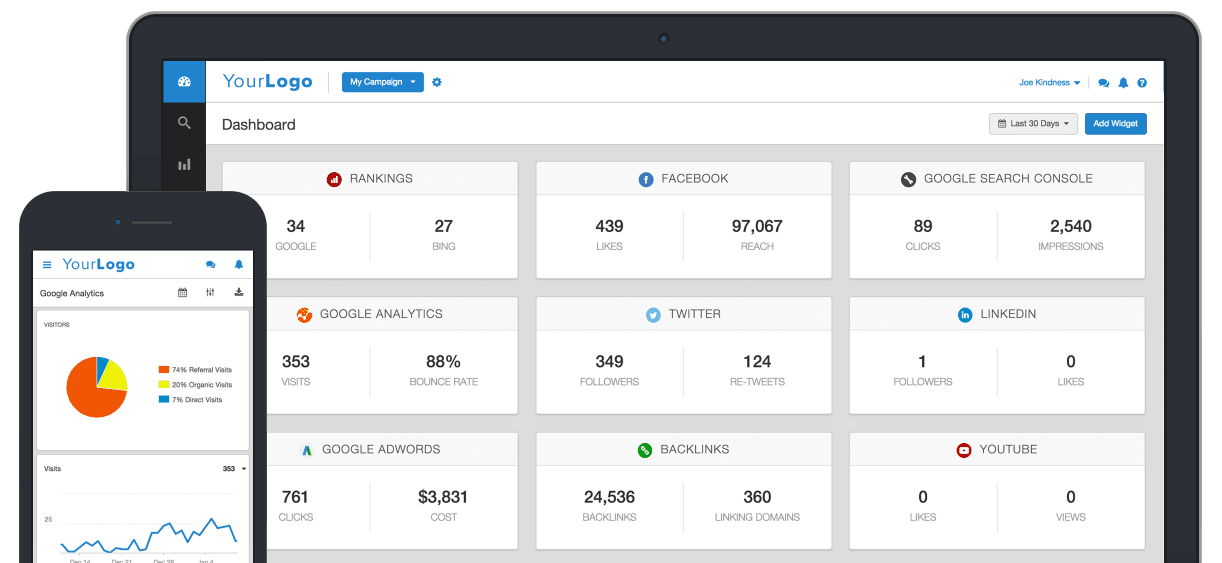
With a growing amount of performance data available for agencies, there came a need to tailor how that information would be presented to clients. AgencyAnalytics delivered with a selection of features designed to add more customization and control.
The company also continued to evolve its approach to growth of integrations. Having more integrations meant agencies could win and keep new clients more easily by supporting data from platforms clients were already using. More integrations also created the potential for new revenue streams, as agencies could subscribe to new platforms, start offering those services to their clients, and report on their clients’ performance in those platforms.
2016
Dedication to maintaining and enhancing a strong and speedy approach to customer support—started hiring dedicated support staff and training them from a technical perspective
Built a framework to start supporting rapid growth of integrations
Released key integrations to Facebook Ads, Instagram, CallRail, and Call Tracking Metrics
2017
The team expands to 7 employees, with more focus on support and development to continue building integrations even faster
Released over 13 integrations, pushing the product further into reporting, including: MailChimp, Campaign Monitor, Avanser, WhatConverts, Marchex, AdRoll, Bing Ads, Active Campaign, Constant Contact, Bing Webmaster Tools, Yext, Birdeye, and Grade.us
Added functionality to enable customers to add comment sections to reports to tell a more specific data story to clients and explain data in reports
Introduced Multi-location SERP tracking—enabled customers to track as many geographic locations as they want in a single campaign
2018
Big improvements to the Report and Dashboard Editor as report-editor-style of interface started to pop up more in SaaS tools
Brought in the ability to create custom dashboards for customers to present to their clients. Agency team members could also create custom dashboards to track their own objectives
Introduced more widgets and drag and drop controls, giving customers more speed and customizability in the platform to craft the story they wanted to tell
Strides in terms of visual design and providing greater data clarity—a focus on making our customers look good to their clients
Introduced Google Sheets—our first foray into introducing a way to get custom data into the platform and show it alongside provided integrations
Introduced a LinkedIn Ads integration
Greater Functionality, Sleeker Presentation and a Growing Number of Integrations
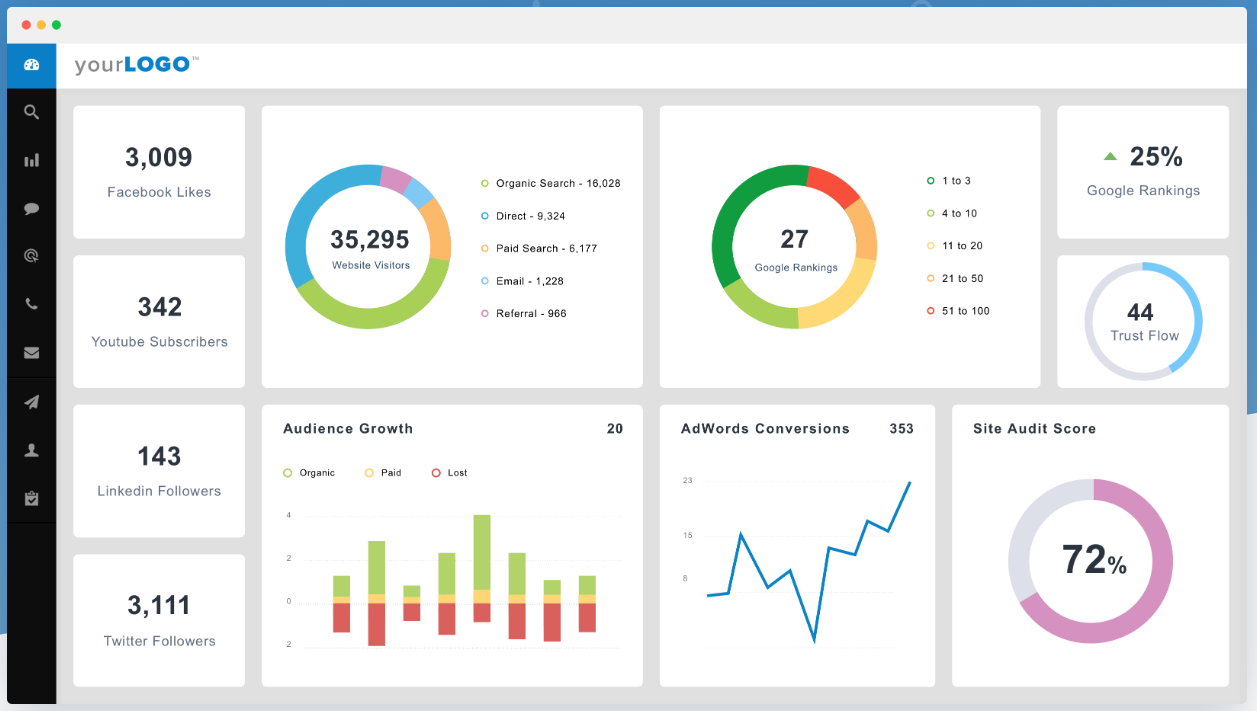
AgencyAnalytics would grow from 3,000 customers to more than 5,000 over the next few years. It continued to build a product more and more people were recognizing as a need for them to be able to run their agencies with impact.
The fast-paced development of integrations became even more of a priority, and the evolving look and feel of the platform improved data presentation and user experience.
2019
Added PPC markup—the ability to add a markup or margin percentage to PPC reports so clients would see this number as opposed to the pre-markup on PPC spend
Set different date ranges for each individual widget for greater customization.
Added a shareable dashboard link, with no login required
Integrations added: Vendasta, Google Business Profile, and a new and improved HubSpot integration
Added charts and date range support for Google Sheets, providing an improved way to show in-house data for integrations we don’t yet support
2020
Reached more than 50 integrations, including the additions of Unbounce, Delacon, and Vimeo
Added several new widgets and greater widget functionality. Users could now embed any URL and show it on a dashboard, share widgets to whatever channel they needed to, and compare date ranges on line graph widget
2021
Grows to more than 5,000 agency clients
Introduced Presentation Mode, enabling customers to display their data in new ways. Included a ‘full screen’ mode that allows them to show only the important dashboard data and remove any distractions
Updated reports and dashboard builder with a fresher look and feel, improved editor functionality, and greater customization
Added several new integrations, including Google Analytics 4, Amazon Ads, Semrush, WildJar, TikTok Ads, and Yelp Ads
2022 and Beyond
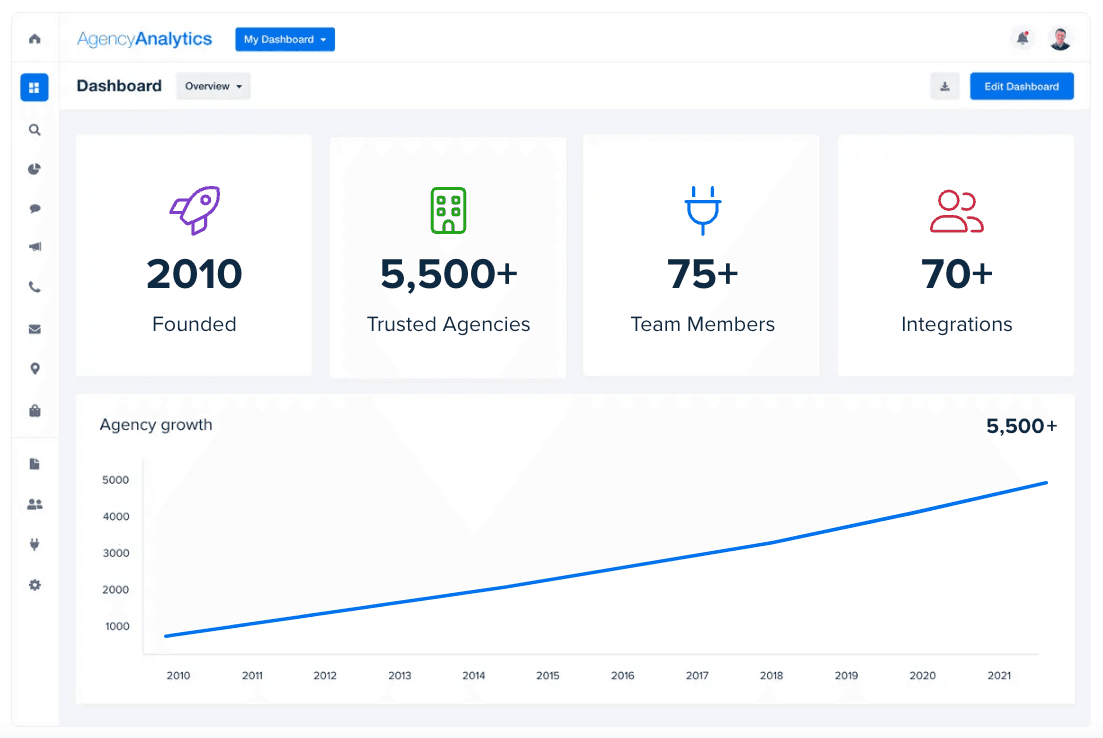
Over a decade since the product launched, AgencyAnalytics is proud to serve over 5,500 customers—some of whom have grown with us since those very early days!
And although we’ve come a long way over the years, we’re just getting started. This year we’ve:
Introduced Goals—customers can instantly see which campaigns need work and know where problems exist
Introduced Custom Metrics—more flexibility to the platform for people to add custom calculations and custom functionality
Reached more than 80 integrations, including the additions of: Google Local Services Ads, Salesforce, SharpSpring, StackAdapt, Spotify Ads, Stripe, and Choozle
Launched the Google Sheets Export Extension—The easiest way to get your marketing data from over 80 top marketing platforms into Google Sheets for extra handling and analysis.
So what’s next?
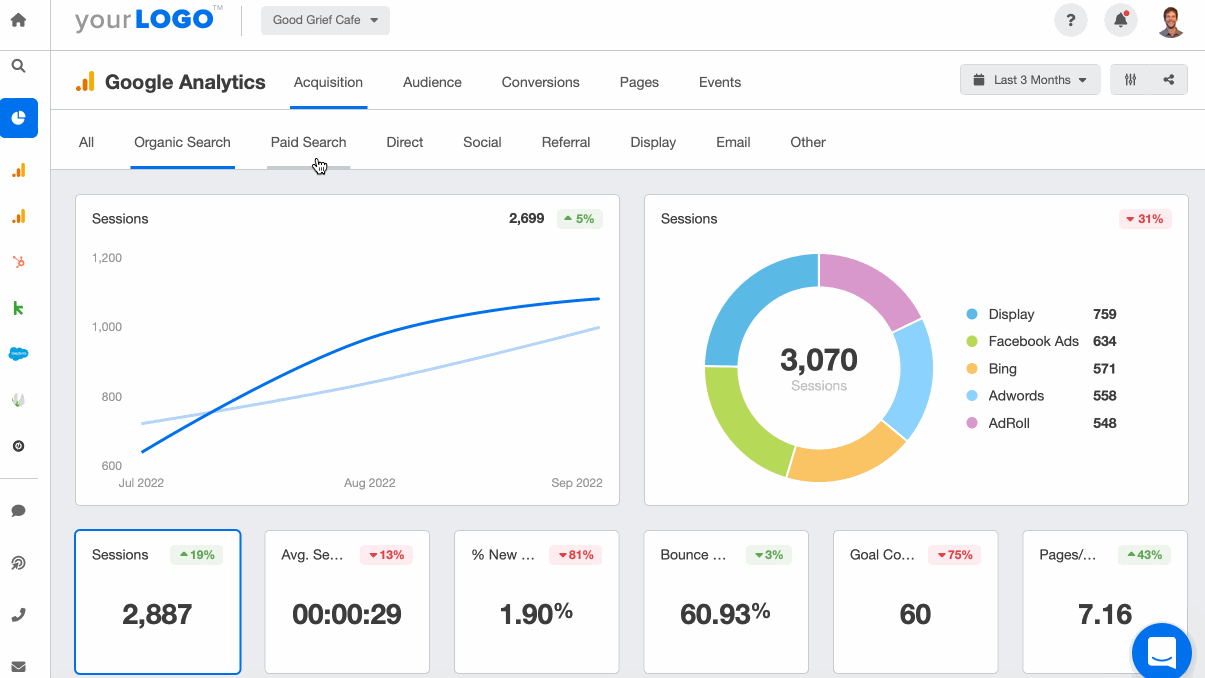
As time goes on, there’s an ever-growing number of accessible data sources growth-focused marketing agencies draw from to manage and perform services for their clients. And as we continue to build out AgencyAnalytics to connect to these various sources—the apps and platforms where work happens—we’re hitting a data inflection point. Our guide to digital agency tools helps you centralize what matters.
“We now have a great system for collecting data, and a pretty good system for visualizing it as well,” said Jesse Smith, VP of Product. “The next leap forward is using machine learning to automatically analyze all this data at scale in ways that humans never possibly could.”
This is going to mean the ability for marketing agencies to perform automated analysis across all their campaigns in AgencyAnalytics. It’s also going to mean having the ability to:
Identify at a glance which campaigns need attention, and
Pinpoint exactly where problems are occurring in a campaign
“When you have big data, you start to imagine all these opportunities because you have this data set. Now it's about how we can leverage it all to give more power to the users,” said Smith.
And continuing to give more power to marketers has been the driving force behind the product since the very beginning.
“To this day, seeing a growing number of people using the product shows us we're continuing to build something people need and we’re delivering value,” said Kindness, CEO. “We really want to keep making the product very useful. Nothing drives us more than making a good product.”
Fellow Founder and CTO Acheson couldn’t agree more.
“We’re passionate about the application, we care about our users, and we want to continue making it better for them. That's what motivates us to keep going.”

Written by
Daniella is a product marketing manager with more than a decade of experience in strategic digital communication and story-telling. She specializes in helping B2B SaaS businesses grow and thrive.
Read more posts by Daniella IngraoSee how 7,000+ marketing agencies help clients win
Free 14-day trial. No credit card required.




